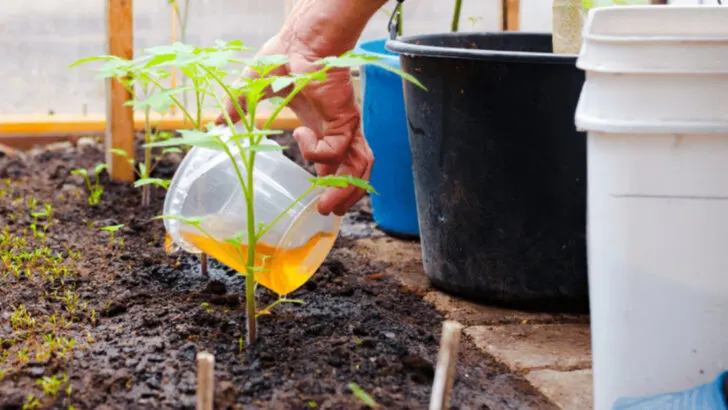TikTok is bursting with bold claims and viral hacks for plant care—but do any of them actually work? At Plantisima, we’ve seen everything from banana peel fertilizer to cinnamon on soil, and while some tips are genius, others are pure greenwashing. So, we decided to test them—so you don’t have to.
In this article, we break down 18 TikTok plant hacks, revealing which ones truly help your plants thrive and which are better left in the scroll zone. Expect honest results, easy-to-follow insights, and a few surprises along the way.
To all our Plantisima readers chasing plant success through social media trends—this is your trusted filter. Let’s separate the clever from the cringey and give your houseplants the care they actually deserve.
Banana Peel Fertilizer
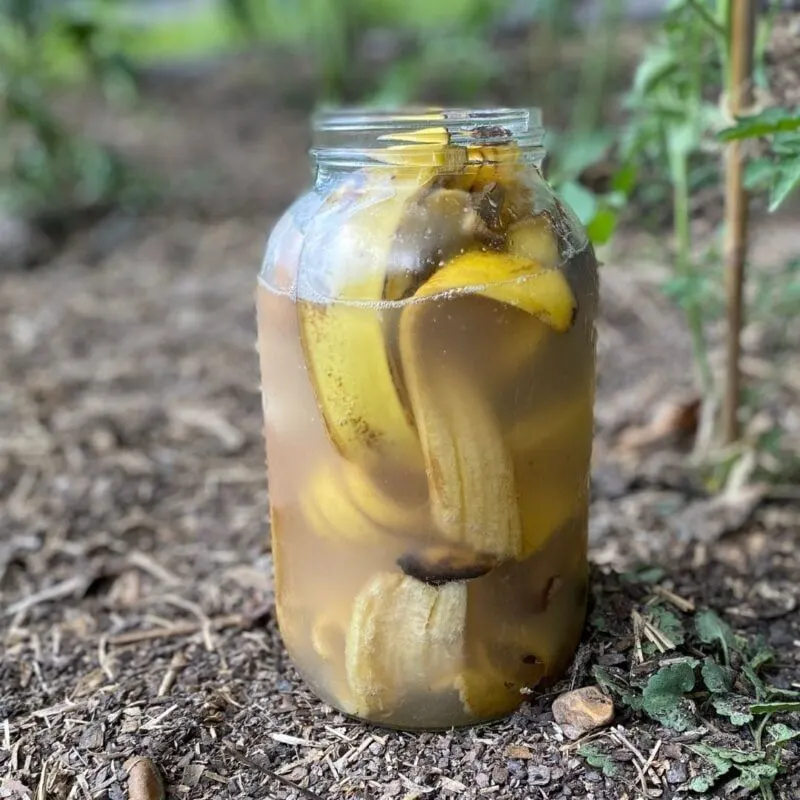
Surprisingly, banana peels aren’t just for compost bins. Creating a liquid fertilizer from banana peels has taken TikTok by storm. Simply soaking peels in water over a few days releases beneficial nutrients like potassium. This hack promises to boost your plants’ health. Tested on pothos and ferns, we noticed greener leaves and enhanced growth. While not a miracle worker, banana peel tea offers an eco-friendly nutrient boost. For best results, apply the liquid to the soil, not directly on the leaves.
Cinnamon as Antifungal
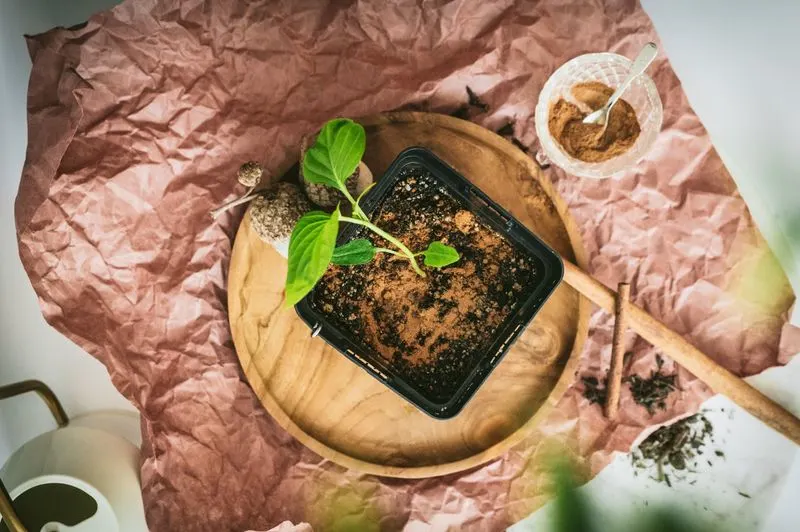
Who knew that a kitchen staple could be a plant’s best friend? TikTok suggests using cinnamon to prevent mold and fungus on soil. Sprinkle it lightly around seedlings to protect them. We found this hack particularly useful for preventing damping-off disease in seedlings. Cinnamon’s antifungal properties make it a natural, non-toxic alternative to chemical fungicides. While it won’t cure existing infections, it’s a great preventative measure. Plus, it leaves a pleasant scent!
Hydrogen Peroxide for Root Rot
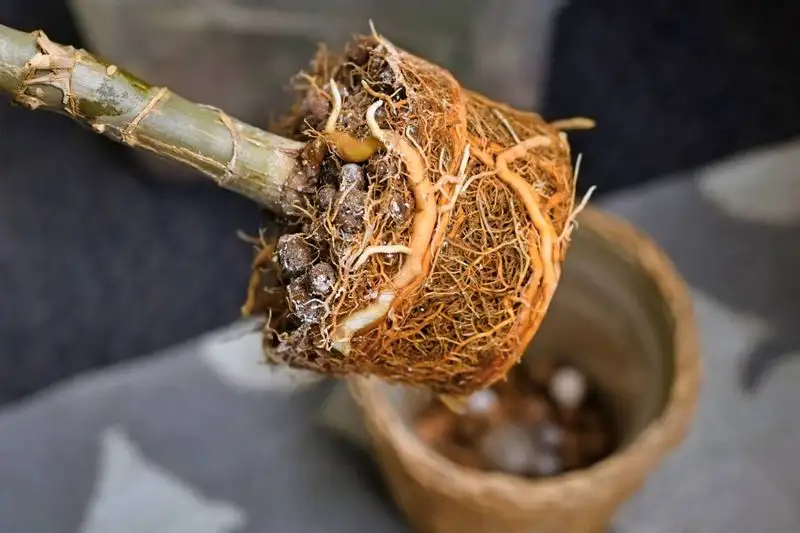
Yellowing leaves might signal root rot, but hydrogen peroxide can help. TikTok users share how diluting it with water and applying to the soil treats this issue. The oxygen released from hydrogen peroxide helps combat root rot by aerating the soil, allowing roots to breathe. We tried it on a struggling monstera and noticed significant recovery. While not foolproof, this technique is a promising remedy for overwatered plants. However, moderation is key to avoid damaging roots.
Aspirin for Plant Immunity
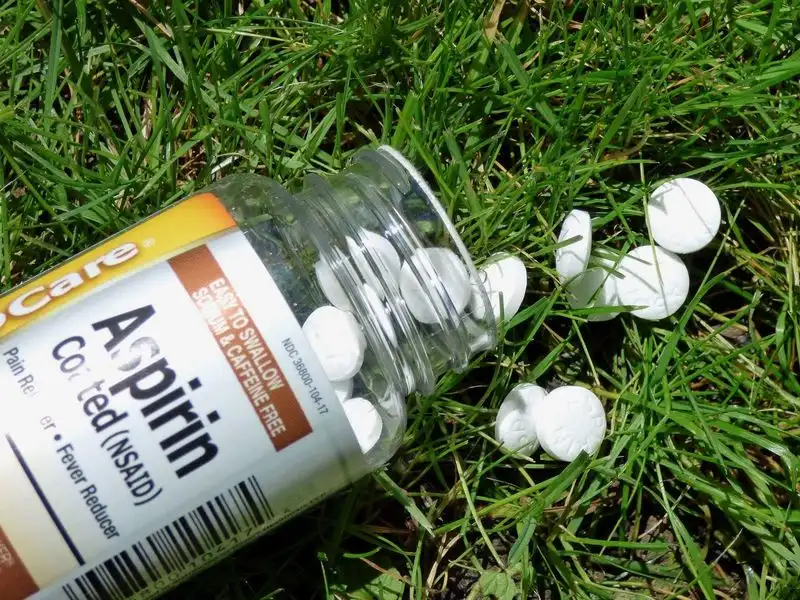
Aspirin isn’t just for headaches; it can boost plant immunity too. TikTok reveals that dissolving aspirin in water and watering plants can enhance their immune response. Salicylic acid in aspirin mimics natural plant hormones, helping them resist pests and diseases. Our tests on tomato plants yielded stronger, more resilient plants. While not a substitute for good care, this hack provides an interesting way to reinforce your plant’s defenses. Remember, a little goes a long way!
Coffee Grounds for Acid-Loving Plants
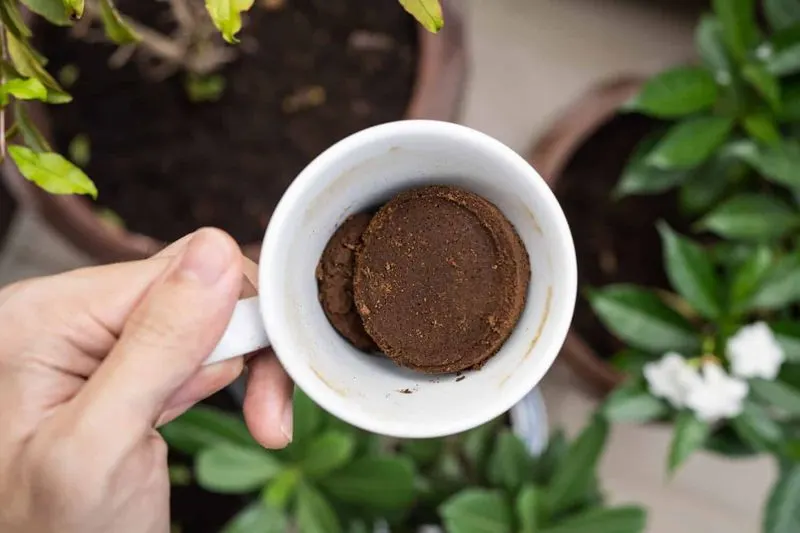
Coffee isn’t just a morning essential; it’s a treat for your acid-loving plants. According to TikTok, sprinkling used coffee grounds around plants like azaleas can improve soil acidity. We tried this on azaleas and blueberries and noticed healthier growth. The grounds also add organic material to the soil, enhancing its texture. However, moderation is crucial to prevent soil from becoming too acidic. This hack is a win for those looking to recycle coffee waste and nourish their garden.
Eggshell Calcium Supplement
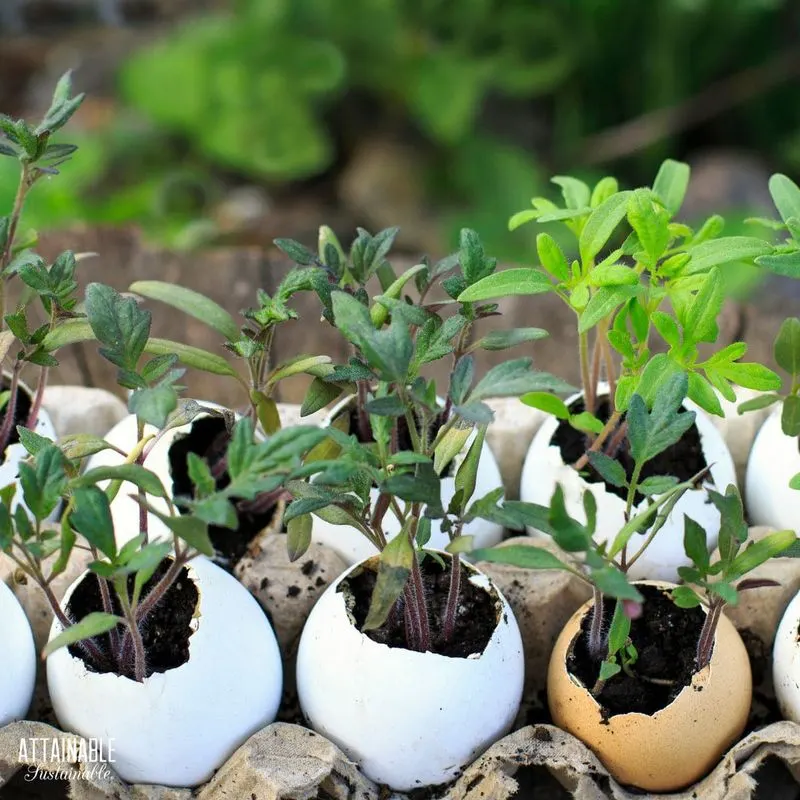
Eggshells aren’t just kitchen waste; TikTok recommends them as a calcium supplement for plants. Crushing eggshells and mixing them into the soil provides a slow-release calcium source. Ideal for tomatoes and peppers, we found this hack effective in preventing blossom end rot. While it doesn’t replace balanced fertilization, it’s a sustainable way to recycle waste and enrich soil. Patience is key, as eggshells take time to break down, but the benefits are worth it for healthier plants.
Milk as a Natural Pesticide
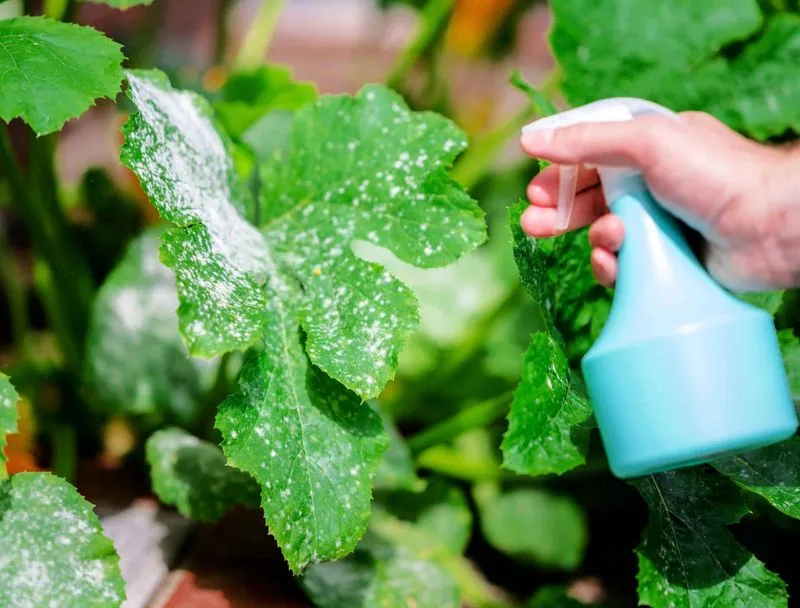
Milk isn’t just for cereal; it’s a natural pesticide too. TikTok suggests using milk to deter pests like aphids and spider mites. Diluting milk with water and spraying it on plants creates a protective barrier. During tests on cucumber plants, we noticed reduced pest activity. While not as potent as commercial pesticides, milk is gentle on plants and adds nutrients to the soil. Ideal for organic gardeners, this hack offers a safe alternative to chemical sprays.
Aloe Vera Gel for Propagation
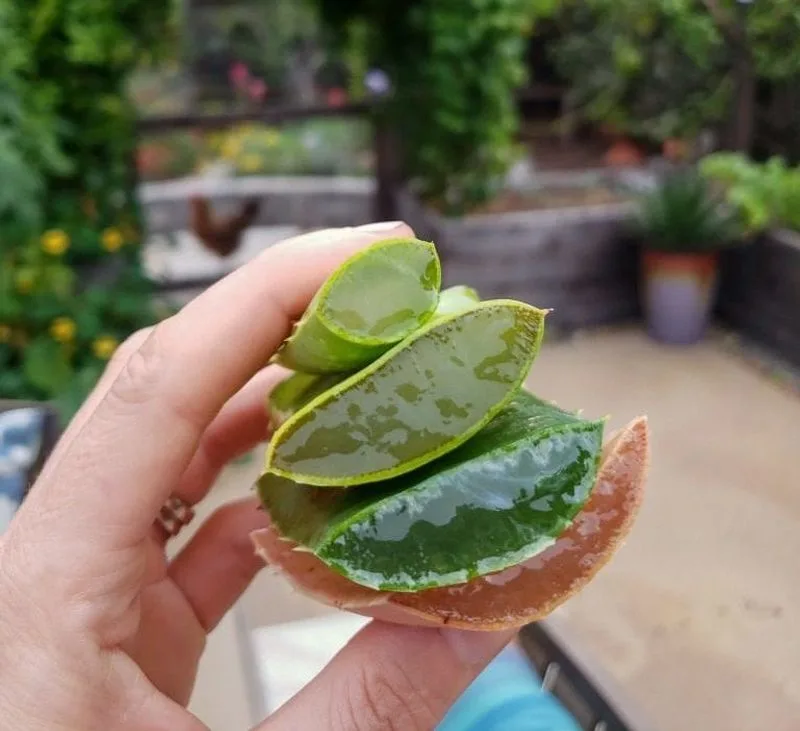
Aloe vera isn’t just for burns; it’s a propagation powerhouse. TikTok users swear by using aloe gel to encourage root growth in cuttings. The gel’s natural hormones stimulate root development, making it a preferred choice for plant propagation. In our trials with succulent cuttings, aloe gel enhanced rooting success rates. Easy to apply, simply dip cuttings in the gel before planting. This hack offers a natural, chemical-free way to boost propagation efforts.
Epsom Salt for Greener Leaves
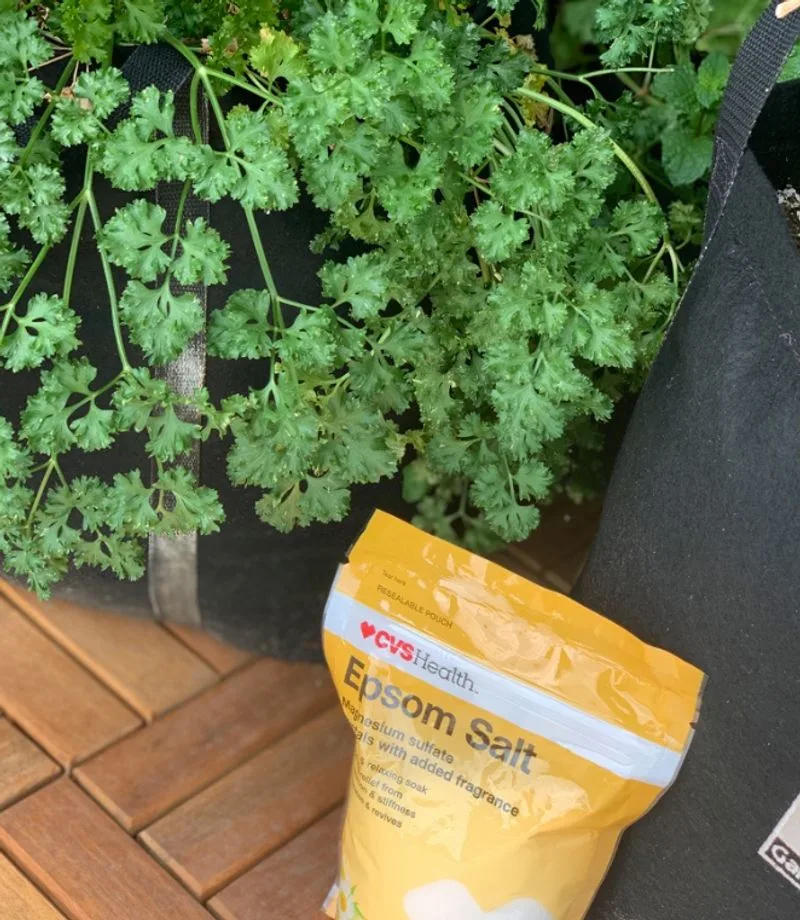
Epsom salt is more than a bath soak; it’s a secret to greener leaves. According to TikTok, magnesium in Epsom salt helps enhance chlorophyll production. Sprinkling it around the base of plants like roses can improve leaf vitality. During our trials, rose bushes showed a notable improvement in leaf color and vigor. However, it’s important not to overuse, as excess magnesium can harm soil balance. Used sparingly, Epsom salt is a valuable tool for enhancing plant appearance.
Tea for Compost Acceleration
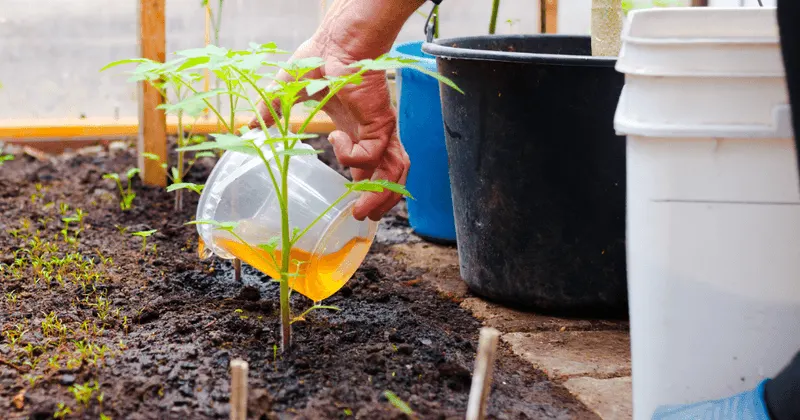
Tea isn’t just a relaxing beverage; it’s a compost catalyst too. TikTok’s composting enthusiasts recommend adding used tea bags to speed up decomposition. The nitrogen in tea accelerates the breakdown of organic matter, enriching compost quality. Our backyard tests confirmed quicker composting and richer soil. Ensure tea bags are biodegradable before adding them. This hack is perfect for avid composters seeking to optimize their piles while recycling kitchen waste effectively.
Rice Water for Plant Nutrition
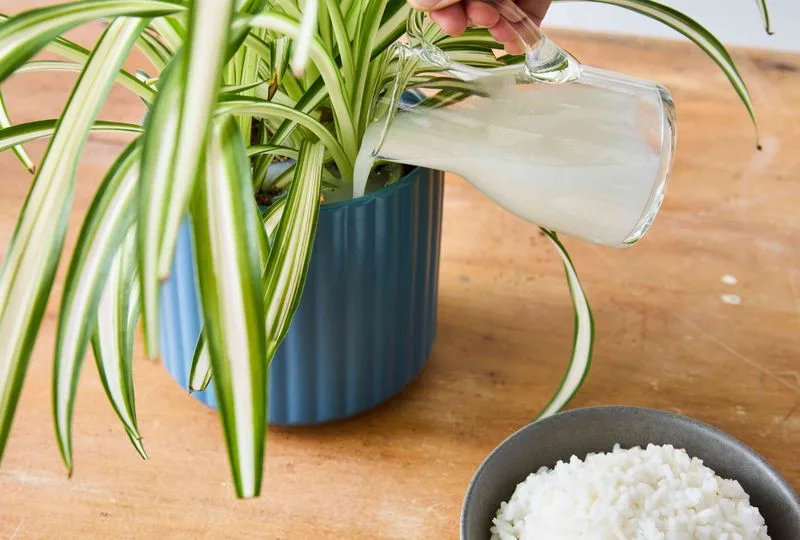
Rinsing rice yields more than clean grains; it produces nourishing rice water. TikTok suggests using this water as a plant tonic. Rich in vitamins and minerals, rice water promotes healthier, more vibrant plants. We tested it on indoor plants, observing improved growth and leaf shine. This hack is a sustainable way to utilize kitchen runoff and support plant health. Apply directly to the soil, ensuring not to overwater. Easy to prepare and beneficial, rice water is a gardener’s ally.
Baking Soda for Mildew Control
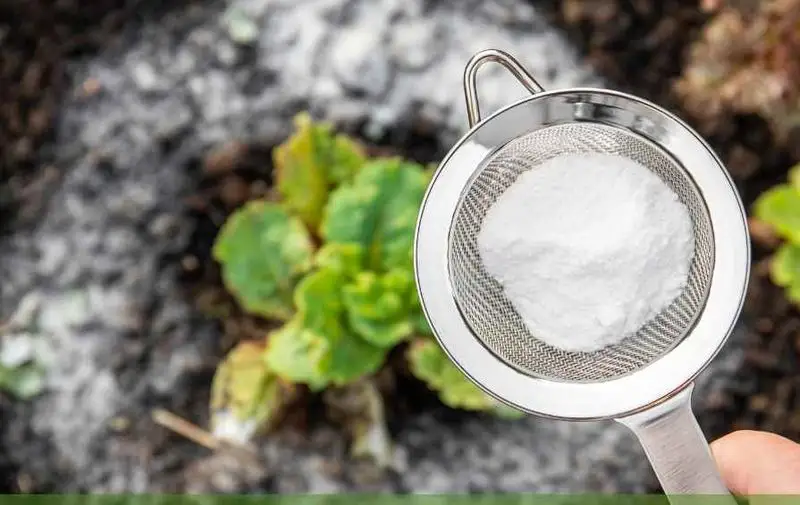
Baking soda is a surprising ally against mildew. TikTok users recommend a solution of baking soda and water to combat powdery mildew on plants. Spraying affected areas showed significant reduction in mildew on our rose plants. This hack provides a non-toxic alternative to chemical treatments, ideal for gardeners seeking natural solutions. Regular application is key to maintaining control. While not a cure-all, baking soda offers a practical method to manage mildew issues organically.
Sugar Water for Reviving Wilted Plants
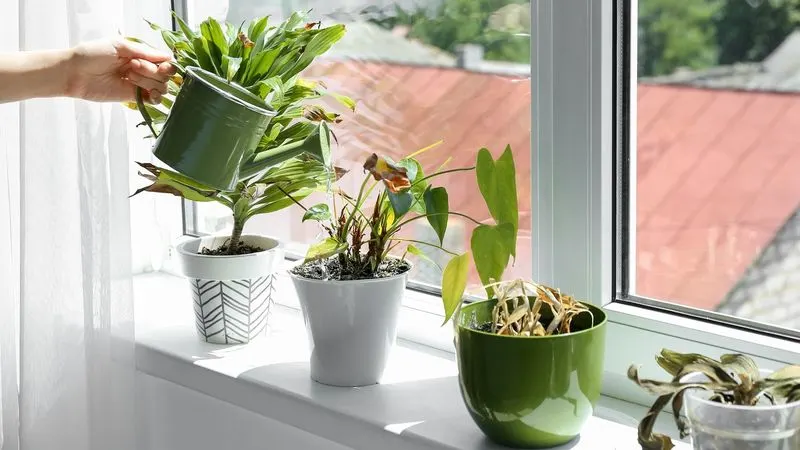
Sugar water isn’t just sweet; it can revive wilted plants too. TikTok suggests dissolving sugar in water to perk up drooping greenery. We tested this on a wilting peace lily, noting a quick revival within hours. The sugar provides a temporary energy boost, restoring plant vigor. However, it’s not a long-term solution, and overuse can harm the plant. This hack is excellent for rescuing plants in distress but should be used sparingly. For ongoing health, focus on proper care and watering.
Beer for Slug Deterrence
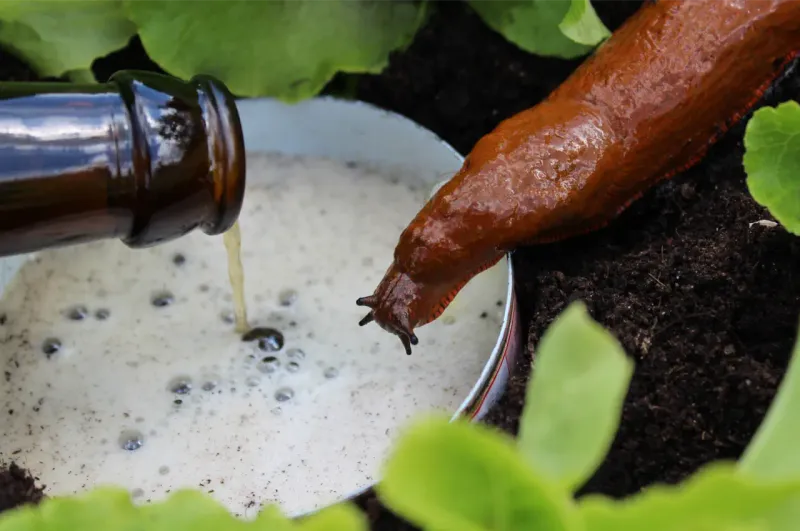
Beer isn’t just for parties; it’s a slug deterrent too. TikTok users recommend using beer traps to lure and drown slugs, protecting plants from damage. Placing shallow dishes of beer in the garden showed reduced slug activity around our hostas. This method is natural and effective, though regular replenishment is necessary. Beer traps provide a safe alternative to chemical pesticides, beneficial for organic gardening. While it won’t eradicate slugs completely, it helps manage their numbers.
Matchsticks for Pest Control
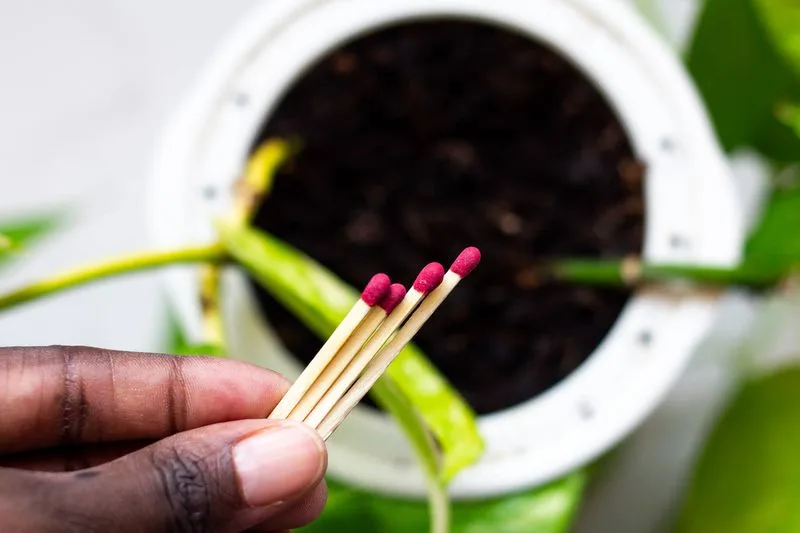
Matchsticks aren’t just for lighting fires; they can deter pests too. TikTok suggests placing matchsticks in soil to combat pests like aphids and fungus gnats. The sulfur in matchsticks acts as a natural repellent. We observed decreased pest activity in our tests on indoor plants. While not a comprehensive solution, this hack offers a chemical-free way to manage minor pest problems. It’s a simple and cost-effective addition to your plant care routine, complementing other pest control methods.
Charcoal for Soil Conditioning
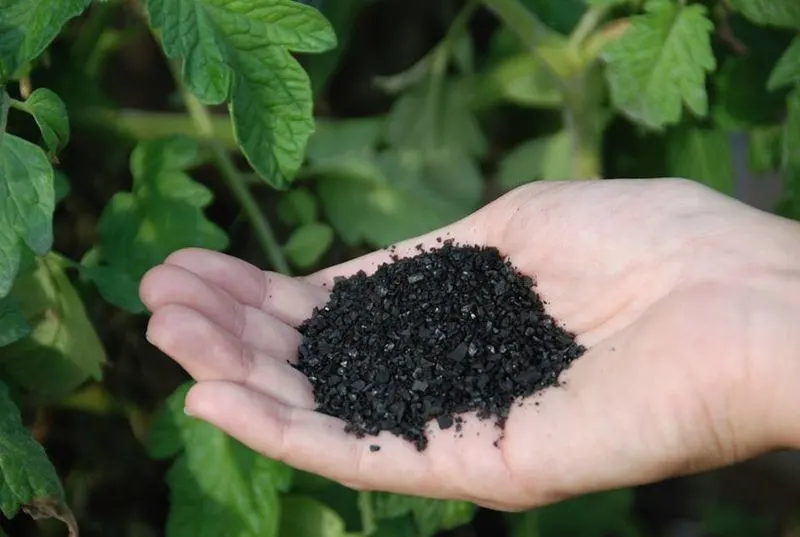
Charcoal is more than a grilling necessity; it’s a soil conditioner too. TikTok recommends incorporating charcoal into potting mix to improve drainage and reduce odors. During our experiments, plants in charcoal-enhanced soil displayed healthier root systems. Charcoal helps absorb excess moisture, preventing root rot. It’s especially useful for potted plants in humid climates. This hack supports better plant health by maintaining balanced soil conditions. Use activated charcoal for best results.
Gel Beads for Water Retention
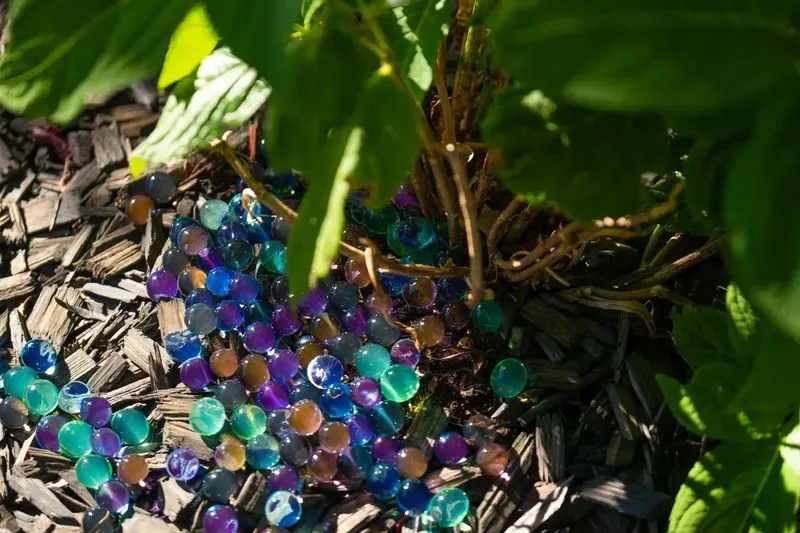
Gel beads aren’t just decorative; they’re water savers too. According to TikTok, adding gel beads to soil helps retain moisture, benefiting plants in dry environments. In our trials, peace lilies with gel beads required less frequent watering and maintained vibrant leaves. These beads slowly release water, preventing over or underwatering. This hack is ideal for busy plant parents seeking low-maintenance solutions. However, ensure beads are non-toxic and suitable for plants to avoid complications.
Vinegar for Cleaning Plant Leaves
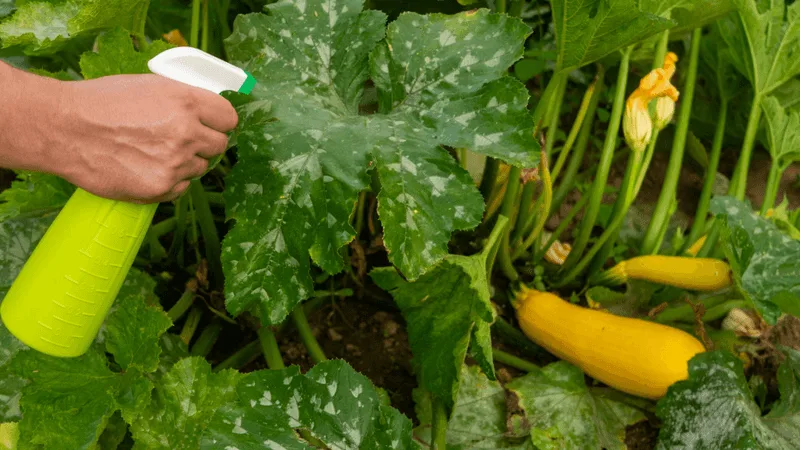
Vinegar isn’t just a cleaning powerhouse in the kitchen; it’s great for plant leaves too. TikTok users propose a diluted vinegar solution to clean and shine plant leaves. Testing on a rubber plant, we observed dust-free, glossy foliage. The acetic acid in vinegar removes grime, enhancing leaf appearance. While effective, use cautiously to avoid damaging sensitive plants. This hack is perfect for keeping indoor plants looking their best, offering a natural alternative to commercial leaf shine products.

